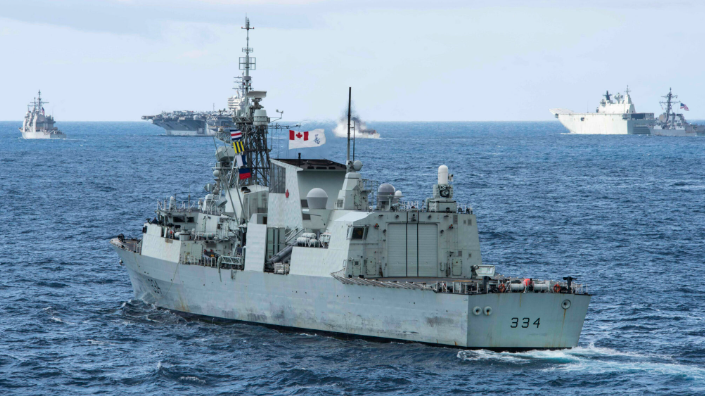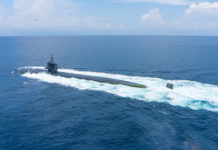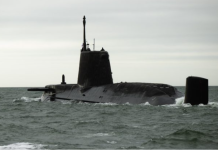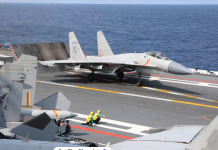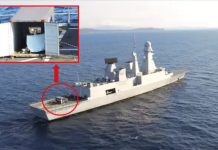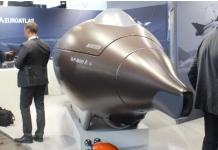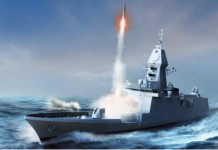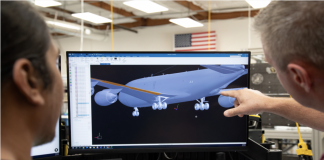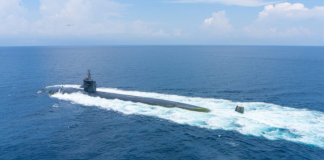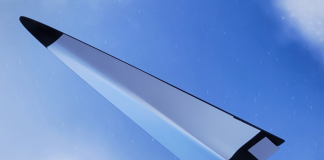The Canadian government recently awarded Lockheed Martin Canada a contract valued at up to $1.85 billion Canadian dollars ($1.33 billion USD) for the continued combat system integration and in-service support of the Halifax-class frigates for their remaining operational lives.
Glenn Copeland, general manager of rotary and mission systems for Lockheed’s Canada branch, told Breaking Defense here on Wednesday that Lockheed’s original long-term contract began in 2008 and ended recently. This new deal, he added, has options that persist through 2045, which is when the last frigate is expected to retire from the Royal Canadian Navy’s fleet. As the systems integrator, Lockheed’s job and the contract’s purpose centers around continually updating the software running the fleet’s combat management system.
“The Royal Canadian Navy’s fleet of Halifax-class frigates are the backbone of maritime operations at home and abroad,” Bill Blair, Canada’s minister of national defence, said in the government’s Oct. 31announcement. “This in-service support contract will ensure our frigates remain operationally effective until the arrival of our future fleet of River-class destroyers.”
Lockheed’s combat management system, dubbed CMS330, is proliferated throughout Canada’s fleet, but the new contract, also speaks to the state of the Royal Canadian Navy’s fleet and the challenges its top admiral has bluntly acknowledged his force is faces.
It’s a necessary measure until Canada brings online the Canadian Surface Combatant, its new warship that was recently named the River-class destroyer. That new class of ship is being built by Canada’s Irving Shipbuilding, which subcontracted Lockheed Martin for the design, a derivative of BAE Systems’ Type 26 Global Combat Ship. Copeland said the first three ships are under contract, and a second contract for another six is anticipated following a full-rate production decision later this year. The first ship is scheduled to be operational in the early 2030s.
Lockheed’s CMS330 combat management system will also be installed on the River class, which Copeland hopes will help to boost its reputation in an effort to sell it abroad in Europe.
“There’s a lot of countries out there right now that have either a MEKO-class or something similar that they want to modernize, plus a bunch of countries that are doing new hull construction warships that don’t” require the Aegis Combat System — a competing CMS also made by Lockheed that’s favored by the US Navy but one that is a more expensive and niche capability compared to CMS330, he said. A “MEKO” class of ships is a term that originates from German firm Blohm+Voss’s family of warships that are multi-purpose in nature and focused on ease of maintenance and low cost.
“We’re on 42 platforms right now and I think in 10 years, we’ll be on well over 75,” Copeland added.

